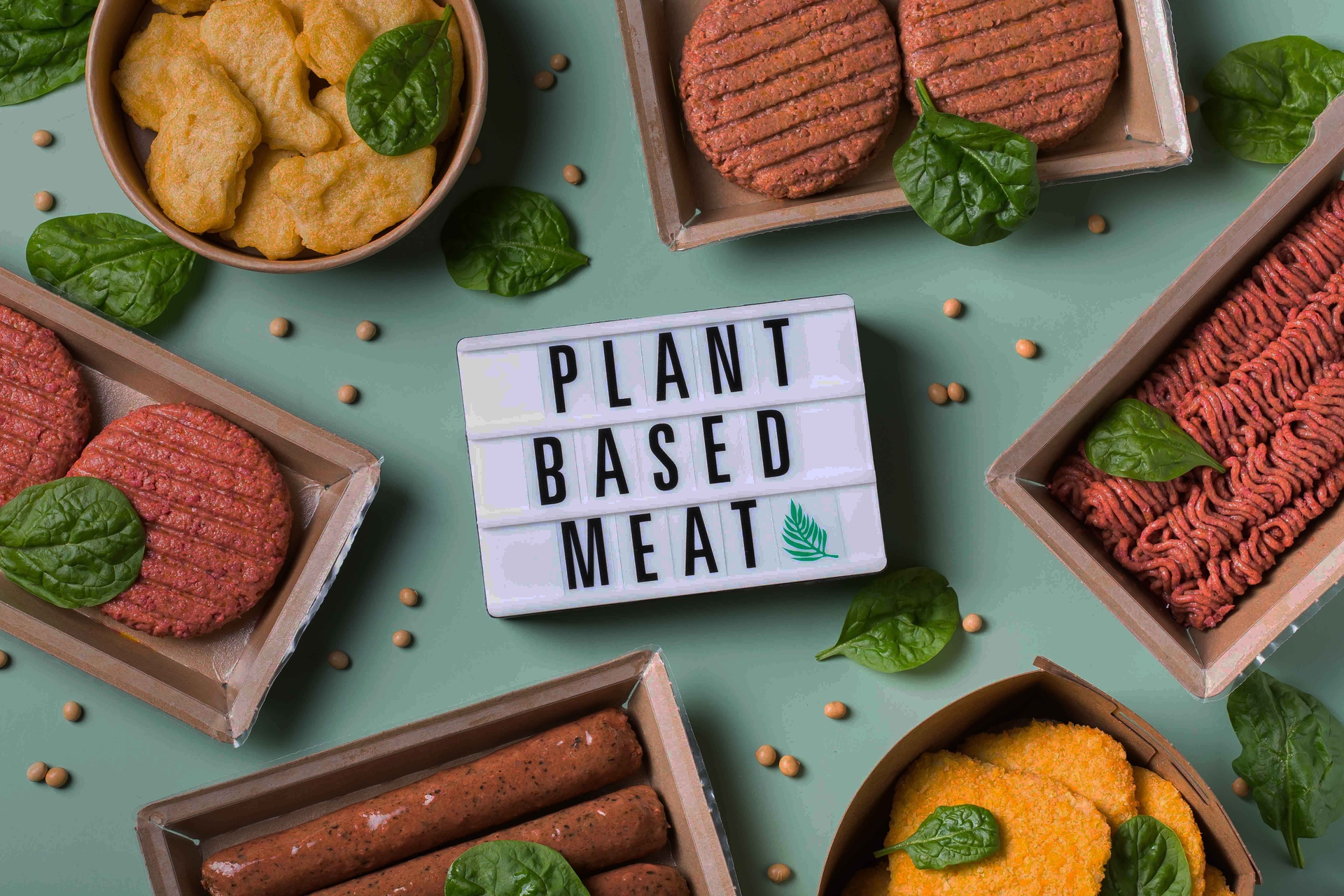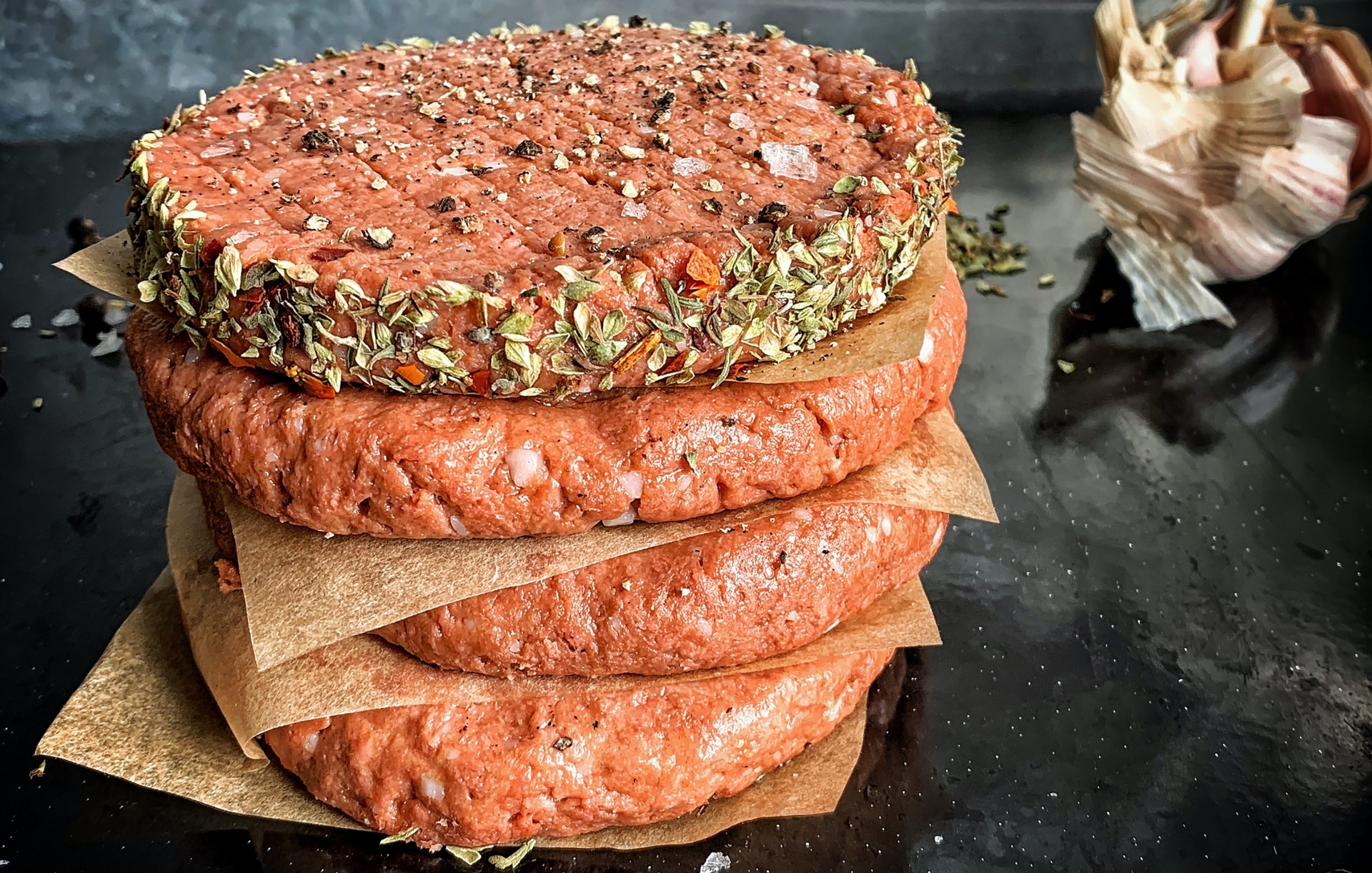
Plant-based meat alternatives
Those who choose to go green don't have to part with the taste and texture of meat forever. See our overview of healthy and tasty alternatives for animal protein.
This article discusses:
- Where did plant-based alternatives of protein come from
- What is the environmental impact of protein substitutes
- What is the future of plant-based protein
- Whether introducing plant-based protein substitutes to your menu is worth the effort
- How animal protein substitutes are served restaurants
Plant-based alternatives to meat are nothing new. For about 2,000 years, people have been searching for a way to recreate animal protein. They have come with both substitutes, i.e. products that are supposed to resemble meat as closely as possible, and replacements, i.e. ingredients that only replace the function of meat on the plate.
With trial-and-error attempts, food trends, religious movements and happy coincidences combined, nowadays we have a global market for vegan products worth more than 25 billion dollars. A large part of this is the market for plant-based meat, which has proven to be an excellent solution not only for vegans and vegetarians, but also for ordinary consumers.
As of 2021, plant-based meat represents about 2.7% of the retail packaged meat market, but that is about to change. Lux Research predicts that by 2054, plant-based meat will account for one-third of the global meat market.

Appetite for plant-based meat: once out of necessity, today of curiosity
The first attempts at replacing animal protein were made in ancient China, where the now popular tofu was invented as early as 200 BC. In 1587, also in China, there was the first mention of yuba, the so-called "tofu skin". This was the first documented case of an attempt to actually substitute an animal product – in this case skin.
Plant-based substitutes arrived onto the consumer market scene around 2010, when startups like Beyond Meat and Impossible Foods popularized their ready-made vegetarian nuggets and patties. Since then, both substitutes and replacements have started to become more popular.
According to Fortune Business Insights, the global market exhibited an increase of 7.30% in 2020 compared to the average year-on-year growth during 2017-2019. The market is projected to grow from USD 5.37 billion in 2021 to USD 10.80 billion by 2028, exhibiting a CAGR of 10.48% during the forecast period (2021-2028).

What are the plant-based protein substitutes?
Today, the choice of meat substitutes is enormous - from virtually flawless ones like Impossible Burgers to those made from just plants, like cauliflower wings. However, six products are the most popular choices. These are:
Tofu - made from soy milk curds, it is the most recognized and widely used meat substitute today. The best thing about tofu is that it is incredibly versatile and tastes good even when raw. Various versions of tofu are available in stores, all of them being high in protein and low in calories.
Seitan – one of the most commonly used meat substitutes. In the production process, starch is sluiced out of the flour, which deprives seitan of nutrients (it consists of almost 100% gluten). Its popularity is definitely due to its texture: fibrous and spongy, deceptively similar to meat.
Jackfruit – its content of vitamins, antioxidants and mineral salts makes jackfruit a great substitute for meat, especially pulled pork, which is why jackfruit is widely used in Mexican dishes.
Tempeh – fermented soybeans, usually formed into cubes resembling tofu. Originating in Indonesia, however, tempeh is a better alternative to tofu because of its high iron and magnesium content, as well as nutty and mushroomy flavor.
Yuba – a soy-based meat substitute made from curd that floats on the surface of boiled soy milk. Yuba is becoming increasingly popular, and it can be purchased dried straight from Asian producers. After softening in water it is usually fried, which gives it a characteristic crunchy texture.
Robi – the latest substitute for animal products, developed in the Czech Republic. It consists of wheat protein, but also beetroot, spices and natural colorings. Its advantage is that it is very simple to prepare. In stores you can find it in the form of ready to heat products.
Aviko's Plant Based Chicken Pops are made from a combination of wheat, pea and soy proteins, most similar to tofu and robi. This unique combination replicates the texture of chicken, providing great satisfaction to those customers who are vegan, vegetarian or are just curious and wanting to try something different.
Meatless meat saves the planet
Plant-based meat is a great alternative for people who choose to switch to plant-based products, but don't want to give up the taste and texture of meat in their daily meals. However, "meatless meat" also has more benefits. Its environmental impact - while noticeable - is incomparably less compared to that of traditional meat.
Studies have shown that between 7500-30000 liters of water are used to produce a pound of beef, while only 1000 liters are needed to produce a pound of tofu. In 2020, the Frontiers in Sustainable Food Systems Journal noted that "replacing meat with its plant-based alternatives would theoretically free up farmland to feed more people or provide other ecological services, such as reforestation."

Is plant-based meat worth embracing?
The need for a healthy lifestyle, exacerbated by the pandemics, as well as concerns about climate change mean that plant-based products will become an increasingly desirable component of menus, especially for Generation Z and millenials. Here are 5 advantages of introducing "meatless meat" to your menu:
Plant-based “meat” = income. In recent years, a delivery company DoorDash has seen a 433% year-over-year growth in the plant-based burger category, as has its competitor, GrubHub. A survey conducted by Impossible Foods showed that 63% of people who have tried the brand's plant-based burgers would like to eat at an establishment that offers them.
Availability of alternative protein sources expands the customer pool. According to a 2019 Gallup poll, "meatless meat" is popular especially among millennials and Generation Z. The Food Institute reports that 65% of Generation Z want to follow a plant-based diet, while 79% eat meatless meals once or twice a week.
Plant-based meats ensure the diversity and creativity of the menu. In 2019, seven of the top ten most popular types of food ordered through the GrubHub platform were meatless (the cauliflower pizza reigns supreme, with a 650% year-over-year revenue increase!). According to data from the portal, guests are still interested in creative plant-based foods.
Plant-based meat can increase restaurant traffic and customer loyalty. A CGS survey found that 68% of consumers consider sustainability when making product choices, and "sustainable and ethical business practices" are the second most important reason for brand loyalty, right after product quality.
Latecomer restaurants will miss out on market opportunities. Innovative protein substitute producers have raised as much as $3.1 billion in funding in 2020 alone. The plant-based alternatives industry is estimated to grow to about $35 billion by 2027.
Plant-based substitutes: global popularity
Fueled by curiosity, the appetite for meat alternatives is growing, and so does the number of restaurants offering “meatless meat”. Haus Hiltl in Zurich is, according to the Guinness Book of Records, the oldest vegetarian restaurant in the world. Founded in 1898, it continues to please the palates of "green" eaters not only from Switzerland. It also offers vegan options such as the vegan egg salad or the Hiltl tartare sandwich.
On the other hand, founded in 2016 by archaeologist Clare Vallée, the restaurant "ONA" in Arès, France is the first Michelin-starred vegan restaurant in France. ONA (as in "Origin Non-Animale'' or "non-animal origin") has two menus to choose from: Illiad, a three-course offer that changes weekly, and Odyss, an eleven-course seasonal one.
Another renowned restaurant successfully serving plant-based meat substitutes is Tokyo's Daigo, which has already earned two Michelin stars since its opening in 1950. Some dishes use animal products, but fully vegan dishes can be prepared upon request.
Meatless meat is here to stay
In the last ten years, vegan "meat" has come incredibly far. One thing is for sure - plant-based meat is no longer just "something to have," but an absolute necessity on the menu. A great option for your menu would be Aviko Plant Based Chicken Pops. These irresistible bites are made with high-quality plant-based ingredients, giving you all the taste and texture of traditional chicken pops without any meat.